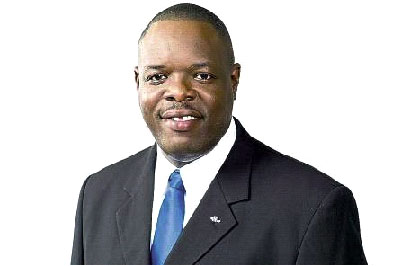(Trinidad Guardian) Although several regional territories are concerned over the Caribbean Examinations Council (CXC) move to administer the Caribbean Advanced Proficiency Exam (CAPE) and Caribbean Secondary Education Certificate (CSEC) examinations in July, although COVID-19 response may still be a major issue for some countries, senior CXC officials say it will go on as planned.
However, CXC has assured that all efforts will be made to preserve the integrity of the exams in all territories.
During a webinar yesterday, CXC Registrar Dr Wayne Wesley said the modified strategy was aimed at minimising disruptions to the education system whilst simultaneously yielding good grades and assessing critical competencies.
Told that Jamaica had indicated it could not administer exams in July due to their COVID-19 situation and that Barbados officials were requesting a suspension of the exams, Wesley said, “We are unable to speak at this moment on the decision by the Jamaican government.”
He said it was a similar case in respect of Barbados also.
Wesley said the award of final grades will include marks drawn from moderated School-Based Assessments (SBAs) and the Paper One which is multiple choice. He said it was imperative that a common paper be administered in all territories. Marks for private candidates will be gleaned from the SBA and Paper Three (2).
The results of both exams will be available by the first week in September, Wesley said.
He said CXC’s quality assurance processes will apply the appropriate weighting during grading to ensure candidates are treated fairly and in an unbiased manner.
There are also concerns out of T&T and other territories that students cannot be properly assessed on SBAs and the multiple-choice paper. These countries believe in the absence of Paper Two, which requires long-form answers, will not give them a chance to properly assess the students’ knowledge.
To this, Wesley said, “The determination of the student’s performance is not only on the multiple-choice examination. There is also the SBA component that will be required.
“We would have done extensive analysis in ensuring that we are able to cover all the necessary skills and competencies and where we were unable to assess those, additional components would have been required.”
Noting the emotional and mental health impact COVID-19 is having on the students’ preparation, Wesley said the withdrawal of the Paper Two, “should reduce the level of anxiety on the student.”
Students in the categories of Modern Languages, Human & Social Biology and Visual Arts will be required to complete additional components, he said.
CSEC students doing Modern Languages, which includes Spanish, French and Portuguese, will be expected to write Papers One, Two and Three (orals).
Those doing Human & Social Biology will have to write Papers One and Two.
Visual Arts students are expected to submit SBAs along with their reflective journals.
For CAPE students pursuing French and Spanish, they must write Papers One, Two and Three and submit their SBA. Private candidates must write Papers One, Two, Three and Four.
Wesley insisted, “Those are exceptions to the modified approach.”
He said the e-testing modality will only be applicable to territories equipped to facilitate e-testing. In territories where the infrastructure challenges are insurmountable, it is expected that those candidates will write paper-based exams. He was unable to say exactly how many territories will be administering paper-based exams but said both processes can be utilised in some territories.
Officials said the e-testing modality is not new to CXC and they have assured there is no room for candidates to cheat. They said in order to access the exams, students must log on to the specific site, following which the safe-exam browser locks them out of accessing all other sites.
Wesley said CXC was intent on preserving the health and safety of all students and invigilators and will be enforcing strict protocols relating to physical distancing, wearing of face masks and sanitisation. He said papers will be marked online.
For countries choosing to write exams in January, he said the normal examination cycle will run.
“Come January, we would have returned to our full administration,” he said.
Asked if consideration had been paid to students who do not have access to devices and cannot complete their SBAs and Internal Assessments (IAs) on time, he said the deadline for the submission of marks had been extended to June 30, while the absolute deadline was July 31.
A total of 30,000 students are registered to write the CAPE exams, while 120,000 students will write the CSEC exams.





